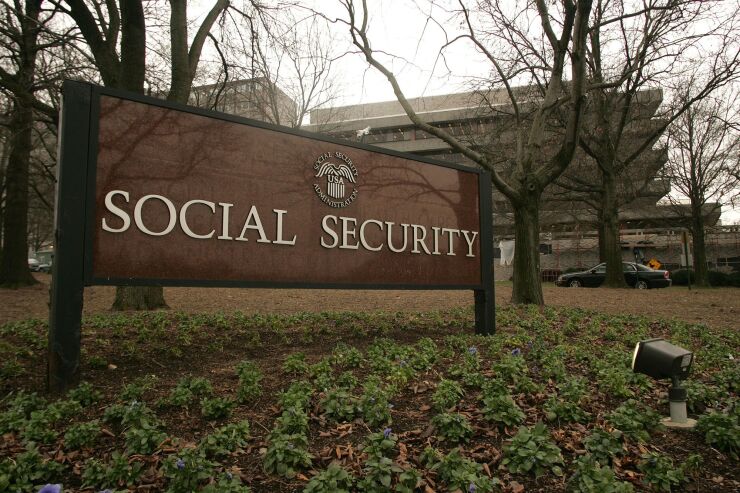Everyone worries about too much inflation. But merely discussing it can make goods and services even more expensive and potentially disrupt retirement planning.
This dynamic, now center stage as consumer prices have ticked up rapidly each month
It’s called the
When consumers see prices rising, they turn negative and expect the trend to continue, in part because bad things tend to be processed more on an emotional level, while good things are absorbed more on a cognitive plane. So as prices spike, worried consumers rush to make big purchases, like houses and washing machines, because they think those items will cost more in the future. The increased demand causes manufacturers and importers to further boost their prices.

Meanwhile, because stuff costs more, employees demand higher pay. When they get it, their employers charge more for the goods and services they sell, because the cost of doing business has risen. Add in shortfalls induced by supply chain snarls, a COVID economy still struggling to recover, global economic damage from Russia’s invasion of Ukraine, a major commodities exporter, and a labor shortage fueled by the pandemic, and the fear of rising prices becomes a self-fulfilling reality.
It all means that advisors have to walk worried clients through what the erosion of purchasing power means for their daily expenses, splurges and nest eggs. At the same time, advisors don’t want to foster assumptions and spending behaviors that can crimp a client’s wallet even more.
“Economists are concerned that even talking about inflation drives it up,” said Lance Sherry, a lawyer and certified financial planner at wealth management firm Kovitz in Chicago. “But it’s out there, and it’s real.”
It’s a version of the same conundrum that the nation’s central bank finds itself in. The Fed’s main role is to keep the natural phenomenon of inflation nominal and steady, using interest rates to shape borrowing and consumer spending. But when consumers have
With investors asking their advisors what the highest consumer prices since 1981 mean for their retirement nest eggs, here’s how wealth planners are handling the “i” word.
The first thing Kovitz's Sherry does is walk his clients through the current and historical situations.
Consumer prices rose 8.6% in May from the same month a year ago, with housing, food and gas prices spiking the most,

U.S. inflation varies widely by decade, from an average of around 8% each year over the 1970s, with some years in the double digits, to under 3% a year over 2000-2009,
The price spike has sent consumer sentiment to its
All of which means advisors may have to pivot from talking about inflation to a significant decline in economic activity of at least a couple of months.
From high-quality corporate paper to munis, there are surprising deals to be had.
Still, Jonathan Thomas, a private wealth advisor at LVW Advisors in Pittsford, New York, argued that “inflation shouldn’t change your investment strategy — it should be about adding things in the margins.” He said he likes short-term corporate bonds from Goldman Sachs and Citibank with returns over 3%.
Ken Van Leeuwen, the managing director of Van Leeuwen & Company in Princeton, New Jersey, said that amid higher prices, wealthy clients may not have to “preemptively” cut back on golf memberships or dining out, in part because he assumes for them a higher “normal” rate of inflation of 4%, twice the 2% target of the Fed.
“This way, our clients are prepared to weather a spike in prices,” he said.
But if inflation psychology persists and prices continue to rise, it could dent his buffer.
“Your retirement dreams can be put at considerable risk when you have a financial plan that doesn’t accurately factor in inflation,” Van Leeuwen said.
Mimi Duff, a senior client advisor at GenTrust, said that with inflation up and stocks down, “the current market is one of the most fertile investment landscapes we have seen in the past 10 years.” She cited highly rated 30-year municipal bonds with a 4.25% yield — the equivalent of a 7% pre-tax return.







